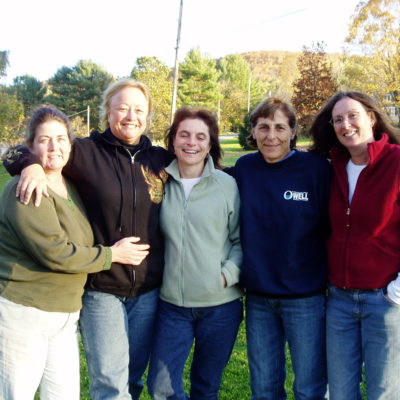A yoke is a smooth concave shape made to fit around the back and neck of oxen or other draft animals, and is designed so the animals do not touch each other and the weight of the load is equally distributed. Today when we hear the word yoke it is most often used to describe a person carrying a very heavy emotional load, or one who is filled with anguish. All of us know someone within our workplace, or within our network, carrying an heavy emotional load.
Personal Issues and Tragedies
There are tens of thousands of us who are dealing with or have dealt with personal issues and tragedies throughout our lifetime. Whether it’s becoming a caretaker for a parent, the death of a child, diagnosis of a severe illness, a relationship breakup, financial problems, a job loss, or legal issues, there are many of our colleagues who are hurting and/or grieving. Many employees have family or friends to share the load, but what about at work?
Employees spend eight hours a day, five days a week in the business world and are trained not to share personal issues or care for others for fear of being perceived as weak or becoming distracted from the work. With no yoke to rely on, how does one continue to be effective at work? Does the suppression of feelings impact the work environment?
Absolutely.
A demonstration of compassion within the workplace becomes the yoke for employees. Many workplace cultures place extreme pressure on employees to be a consistent producer and to ignore anything personal and emotional in the office. It is unrealistic for managers and leaders to ask employees who are dealing with tragedies and crises to leave their emotions at home. The suffering and pain does not disappear.
What Is Compassion
The authors of Leading in Times of Trauma conducted three years of research at the Compassion Lab, a joint project between the University of Michigan Business School and the University of British Columbia, and demonstrated that it is universally natural for humans to show compassion. But organizations either restrain compassion or create a culture of demonstrating compassion. The researchers clearly proved that expressions of compassion do heal. A compassionate work environment allows employees to not use up their energy trying to hide their pain from others. Compassion is a critical component within the workplace because it maintains a high performance in others, lessens the immediate suffering of those directly affected by the trauma and increases company loyalty.
between the University of Michigan Business School and the University of British Columbia, and demonstrated that it is universally natural for humans to show compassion. But organizations either restrain compassion or create a culture of demonstrating compassion. The researchers clearly proved that expressions of compassion do heal. A compassionate work environment allows employees to not use up their energy trying to hide their pain from others. Compassion is a critical component within the workplace because it maintains a high performance in others, lessens the immediate suffering of those directly affected by the trauma and increases company loyalty.
The researchers also identified three leadership skills and company practices that are critical in the workplace during times of suffering:
- Communicate some form of expression publicly and immediately.
- Personal involvement of leadership is critical.
- Ask the employees for help in expressing some form of compassion.
If pain is ignored, the bottom line suffers
In Toxic Emotions at Work, Peter J. Frost writes that managers must adopt compassion to avoid the debilitating effects of pain on performance. Pain may be caused by an abusive boss to a sudden death. When suffering is recognized, it becomes a positive force for change. Research shows that if pain is ignored, the bottom line suffers. Humans require humane responses even though the world of business is harsh. Many leaders rate poorly at this skill.
performance. Pain may be caused by an abusive boss to a sudden death. When suffering is recognized, it becomes a positive force for change. Research shows that if pain is ignored, the bottom line suffers. Humans require humane responses even though the world of business is harsh. Many leaders rate poorly at this skill.
In What Good Is Compassion at Work? the researchers have the following suggestions to help the healing process begin:
- Create an environment where everyone can express how they feel (i.e., questions about well-being, words, gestures, listening, hugs, giving tangible materials such as money, flowers or food).
- Create an environment in which those who experience or witness pain can find ways to alleviate their own and others’ suffering (i.e., people offering or giving freely of their time, stepping in to help with a project, offering work schedule flexibility).
Colleagues do not want to burden others at work, but sorrow and emotional trauma are a big part of every human life. Sorrows do pass, but while managing pain, most employees want to express themselves, get over it, and have their bosses and colleagues back off for just a while.
Listening
Compassion is listening intently instead of making the judgment, “what’s wrong with him today?” The workforce needs listeners. Listening to our colleagues only strengthens our relationships and our business partnerships. It is only human nature to show a little human kindness.
Remember, the sufferers do not want advice—they want to be understood. Here is a challenge: Ask someone you know how they are doing, and really listen.
One thing we know for sure: Genuine compassion and empathy heals every hurting human soul and lightens their yoke.
Michele Wierzgac, MSEd, speaker and author, promises that you will leave her solution-driven keynotes and workshops with at least one passionate, life transforming, leadership tool – something that will change the way you seek out a solution and practically apply it without getting stuck.
Email Michele at michele@micheleandco.com or give her a call at (708) 710-7055!







